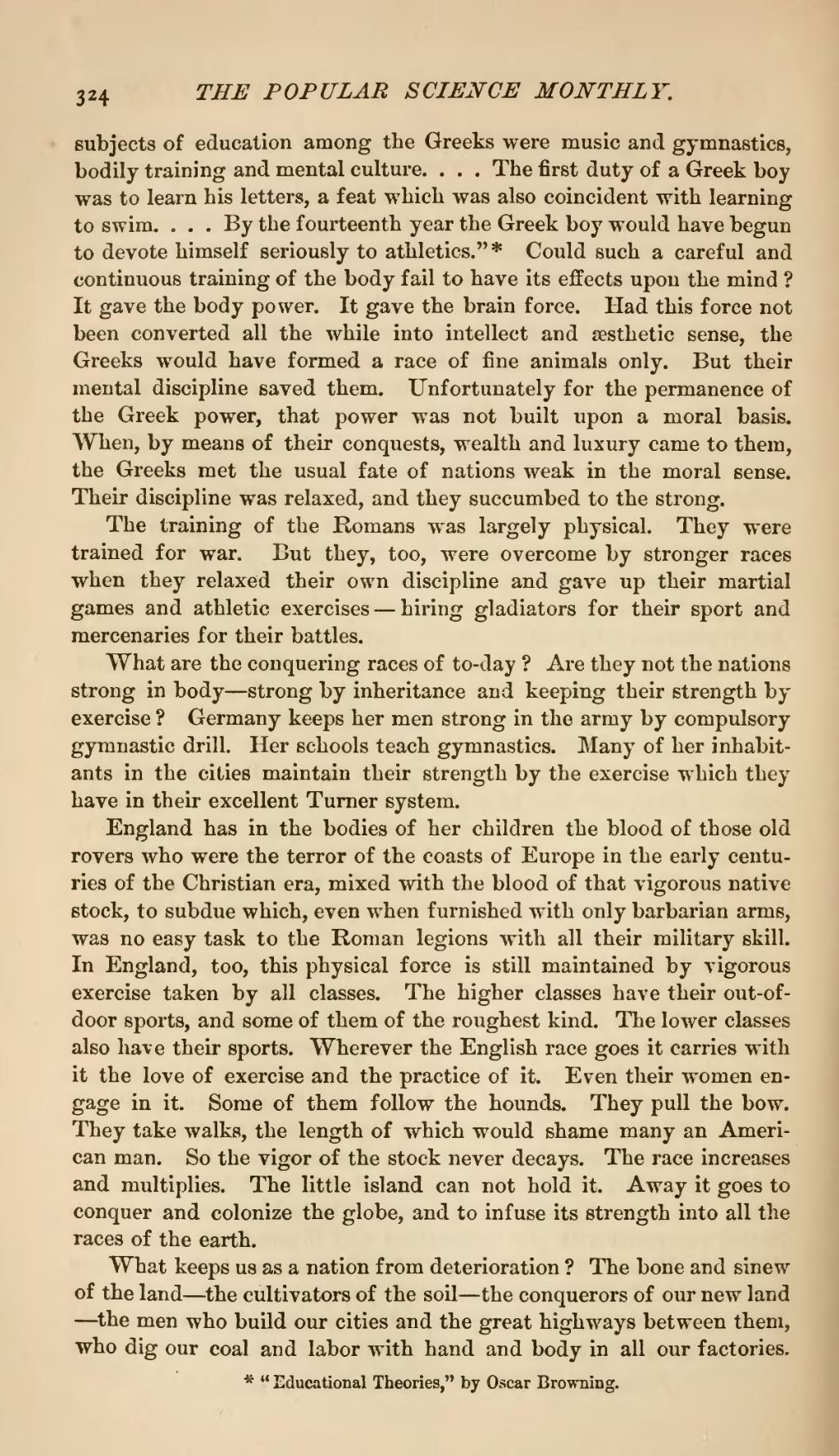subjects of education among the Greeks were music and gymnastics, bodily training and mental culture. . . . The first duty of a Greek boy was to learn his letters, a feat which was also coincident with learning to swim. . . . By the fourteenth year the Greek boy would have begun to devote himself seriously to athletics."[1] Could such a careful and continuous training of the body fail to have its effects upon the mind? It gave the body power. It gave the brain force. Had this force not been converted all the while into intellect and aesthetic sense, the Greeks would have formed a race of fine animals only. But their mental discipline saved them. Unfortunately for the permanence of the Greek power, that power was not built upon a moral basis. When, by means of their conquests, wealth and luxury came to them, the Greeks met the usual fate of nations weak in the moral sense. Their discipline was relaxed, and they succumbed to the strong.
The training of the Romans was largely physical. They were trained for war. But they, too, were overcome by stronger races when they relaxed their own discipline and gave up their martial games and athletic exercises—hiring gladiators for their sport and mercenaries for their battles.
What are the conquering races of to-day? Are they not the nations strong in body—strong by inheritance and keeping their strength by exercise? Germany keeps her men strong in the army by compulsory gymnastic drill. Her schools teach gymnastics. Many of her inhabitants in the cities maintain their strength by the exercise which they have in their excellent Turner system.
England has in the bodies of her children the blood of those old rovers who were the terror of the coasts of Europe in the early centuries of the Christian era, mixed with the blood of that vigorous native stock, to subdue which, even when furnished with only barbarian arms, was no easy task to the Roman legions with all their military skill. In England, too, this physical force is still maintained by vigorous exercise taken by all classes. The higher classes have their out-of-door sports, and some of them of the roughest kind. The lower classes also have their sports. Wherever the English race goes it carries with it the love of exercise and the practice of it. Even their women engage in it. Some of them follow the hounds. They pull the bow. They take walks, the length of which would shame many an American man. So the vigor of the stock never decays. The race increases and multiplies. The little island can not hold it. Away it goes to conquer and colonize the globe, and to infuse its strength into all the races of the earth.
What keeps us as a nation from deterioration? The bone and sinew of the land—the cultivators of the soil—the conquerors of our new land—the men who build our cities and the great highways between them, who dig our coal and labor with hand and body in all our factories.
- ↑ "Educational Theories," by Oscar Browning.
